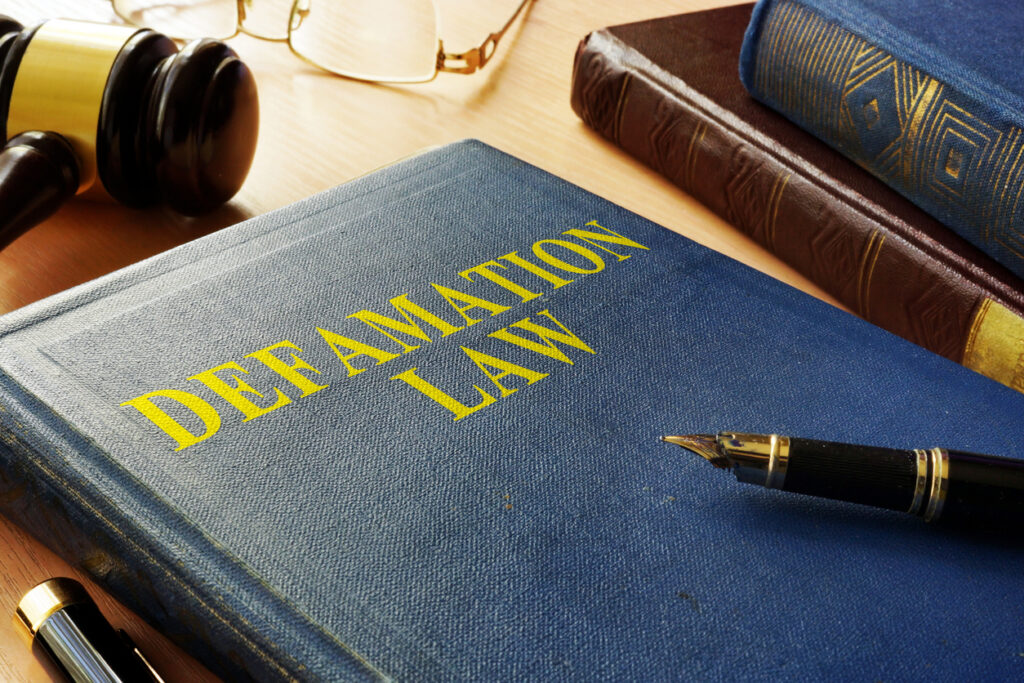The ability to protect one’s reputation is a cornerstone of personal and professional integrity. In the realm of legal disputes, slander, libel, and defamation of character represent the mechanisms by which individuals can seek justice when their reputation is unfairly attacked. At Parrish & Goodman, Attorneys at Law, we aim to shed light on these important legal concepts, their distinctions, and how one might navigate a defamation lawsuit in Florida.
Defining Defamation of Character
Defamation of character is a legal term that encompasses any false statement presented as a fact that injures a party’s reputation. In Florida and across the United States, defamation can occur in two forms: slander and libel.
Slander vs. Libel: Key Differences
Slander and libel are both similar and different. Here’s how:
Slander
Slander refers specifically to defamatory statements that are made orally. This includes spoken words, gestures, or any other form of verbal communication. Because slander typically involves transient words (e.g., spoken during a conversation or speech), it may be harder to prove compared to libel. To establish a case of slander, the plaintiff must demonstrate that the statement was made to a third party, was false, and resulted in harm to their reputation.
Libel
Libel encompasses defamatory statements that are made in a fixed medium, such as writing or publishing. This includes newspapers, magazines, online articles, and social media posts. Because libelous statements are recorded and can be referenced over time, they generally carry a heavier burden of proof in many jurisdictions, including Florida, where the plaintiff does not need to show damages; the act of publishing itself can be enough to establish harm.
When Can You Bring a Defamation Lawsuit in Florida?
In Florida, several key elements must be present to successfully bring a defamation lawsuit:
- A False Statement: The plaintiff must establish that the defendant made a false statement that purports to be factual. Truth is an absolute defense to defamation claims, so if the statement is true, it cannot be considered defamatory.
- Publication: The statement must have been communicated to a third party, either verbally (slander) or in writing (libel). This publication can include any format that conveys the statement to someone other than the person defamed.
- Harm to Reputation: The plaintiff needs to demonstrate that the false statement damaged their reputation. While harm can often be inferred from the nature of the statement (e.g., accusations of criminal behavior), some circumstances may require proof of specific damages.
- Fault: In Florida, public figures must prove “actual malice” to succeed in a defamation claim, meaning the statement was made with knowledge of its falsity or with reckless disregard for the truth. Private individuals simply need to prove negligence, showing that the defendant failed to exercise reasonable care in ensuring the statement was true.
The Process of Filing a Defamation Lawsuit
If you believe you have been defamed, the following steps can help initiate your lawsuit:
- Consult with an Attorney: Seek legal counsel from an attorney experienced in defamation cases. They can help you evaluate whether you have a viable claim based on your specific situation.
- Gather Evidence: Collect any evidence that supports your case, including witnesses who heard the slanderous remark or copies of written statements. Documentation will be crucial in establishing your claims.
- Send a Demand Letter: Prior to filing a lawsuit, your attorney may suggest sending a demand letter. This letter formally requests that the defamer retract their statement. In some cases, resolution can occur before litigation begins.
- File the Complaint: If the issue is not resolved, your attorney can file a formal complaint in the appropriate Florida court, outlining your claims and the relief you seek.
- Proceed with Litigation: The case will proceed through the legal system, involving phases such as discovery, trial, and potentially appeals.
Frequently Asked Questions (FAQs) About Defamation of Character
What is the difference between slander and libel?
Slander refers to spoken defamatory statements, while libel pertains to written or published statements. The key distinction lies in the medium through which the defamation occurs.
Can I sue for defamation if the statement is true?
No. The truth is a complete defense against defamation claims. If the statement you are disputing is true, it cannot be considered defamatory.
How long do I have to file a defamation lawsuit in Florida?
In Florida, the statute of limitations for defamation cases is generally two years from the date the defamatory statement was published.
What damages can I recover in a defamation case?
Damages can include compensatory damages for harm to your reputation, emotional distress, past and future economic losses, and, under certain circumstances, punitive damages intended to punish the offender.
Do I have to prove I suffered specific damages in a slander case?
Unlike libel, where damages may not need to be proven due to the nature of the statement, slander typically requires the claimant to establish that they suffered actual damages as a result of the slanderous remarks.
Florida Defamation of Character Attorneys
Navigating the complexities of slander, libel, and defamation of character suits can be challenging. If you believe your reputation has been unjustly harmed, the experienced attorneys at Parrish & Goodman, Attorneys at Law, are here to help. We can guide you through the legal process, advocate for your rights, and assist you in pursuing the justice you deserve. Contact us today for a consultation to discuss your case and explore your options.




